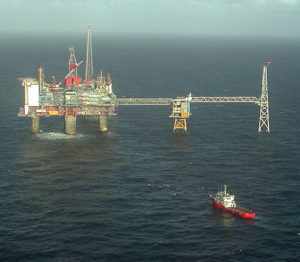
The government appointed carbon capture, usage and storage (CCUS) task force has delivered its recommendations to help deliver CCUS at scale.
It calls for similar subsidy support that has driven down the cost of offshore wind and other technologies over the last two decades, and for government to agree to share transport and storage infrastructure risks.
CCS or CCUS features prominently in most 2050 scenarios aiming to limit climate change to non-catastrophic levels.
Advocates argue that its component technologies are well understood, with energy minister Claire Perry pointing to around 20 projects around the world in the task force’s report.
Meanwhile, according to studies delivered by the Energy Technologies Institute, the UK has vast storage resources (equivalent to 78,000 million tonnes), and world-class oil and gas expertise.
But CCS/CCUS is not yet at a commercial stage, as Perry notes in her forward.
Convincing investors to back it, even if their investment is de-risked by tax- or bill-payers, might prove challenging.
However, the task force thinks it can be done with the appropriate regulatory frameworks, subsidies, risk transfers and business models in place.
The report outlines the case for CCUS: That it could enable a hydrogen economy; could decarbonise heavy industry; may help decarbonise heat and transport and; potentially balance a power system dominated by renewables.
The report says CCUS could also generate new revenues from storage service provision to Europe, as well as retain jobs and skills as North Sea oil and gas production diminishes.
It makes a raft of recommendations, calling on government to commit by the end of this year to two CCUS ‘clusters’ by the mid-2020s and to ensure hydrogen projects can be funded under gas network operators’ next regulatory framework (RIIO2), before they have to submit their spending plans to the regulator in September 2019.
Government and industry should identify North Sea and Irish Sea gas and oil assets approaching the end of their lives and consider keeping them open as potential CO2 stores, the report adds.
To finance CCS, the task force recommends government, industry and finance communities determine which risks might be shared and any new funding mechanisms that may be required.
In the longer-term, the report recommends that government engages internationally around transportation of CO2. Domestically it should encourage regulators across energy and transport and other sectors to better decarbonise the economy outside of silos.
The task force also says industry should develop a ‘decarbonised product mark’ for industrial products, which government promotes domestically and internationally.
See the report here.
Related stories:
Hydrogen: The great white hope for decarbonisation?
Cadent plans major hydrogen plus carbon capture and storage push
Hydrogen for heat ‘will create anchor carbon capture and storage projects’
Vattenfall backs hydrogen to decarbonise heavy industry, eyes supply chain
Eon boss: Renewable power is ‘done’, now for heat and transport
Can wind, rocks, coal mines and salt decarbonise heat?
Climate Change Committee calls for ‘proper’ hydrogen trials
Click here to see if you qualify for a free subscription to the print magazine, or to renew.
Follow us at @EnergystMedia. For regular bulletins, sign up for the free newsletter.



